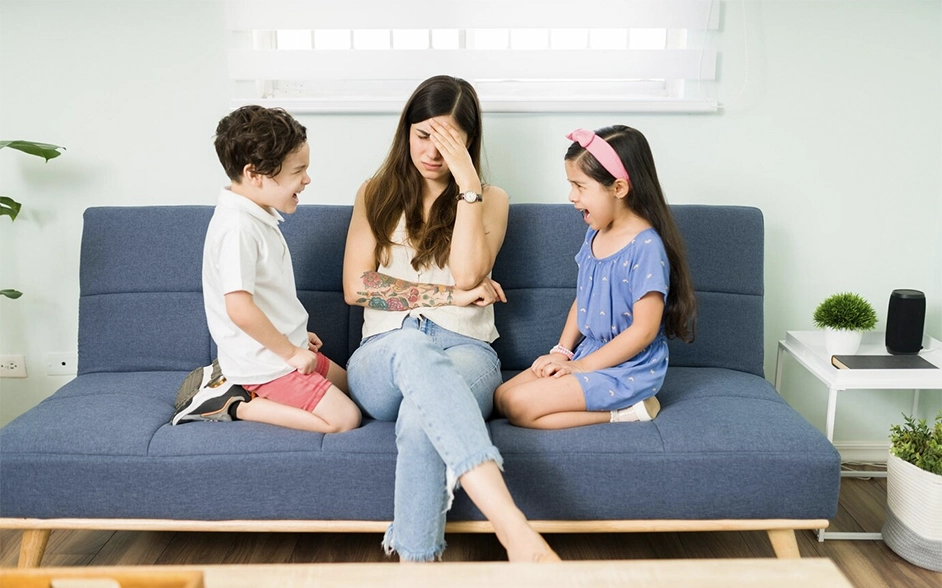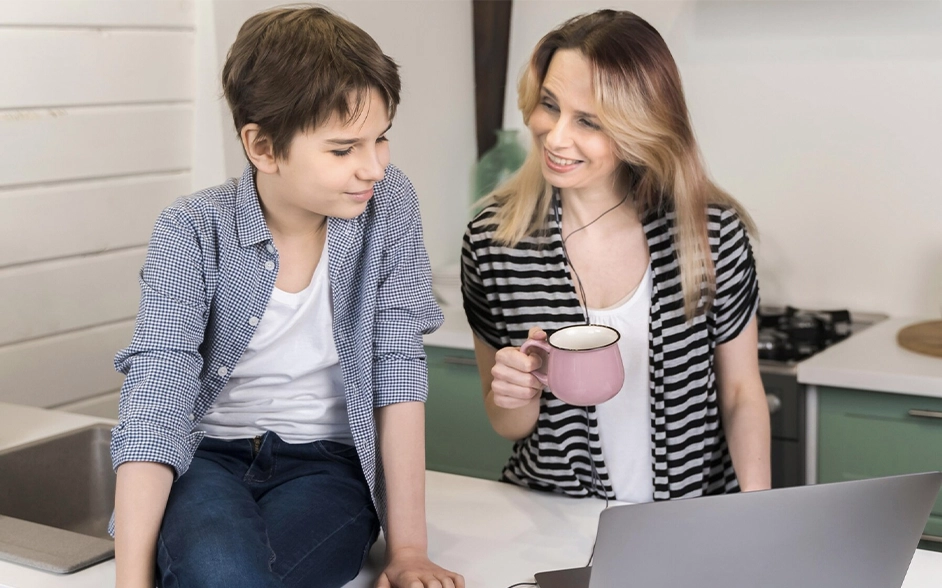- Mumbai, New Delhi, Bangalore
- (+91) 81518 30000
- WhatsApp Now
- contact@vedawellnessworld.com
Parenting in 2025 is no joke. From “mindful screen time” to “gender-neutral birthday parties,” parents are doing their best but sometimes, best intentions come with unintended emotional side effects. This blog breaks down 20 new-age parenting styles that, though trendy, might unknowingly harm your child’s mental health now or in the future. This article has a humorous yet serious take on emotional well-being and modern parenting.
Sounds sweet, until your 10-year-old knows more about your marital fights than your therapist.
Harmful effect: Blurs emotional boundaries. Kids need parents, not gossip buddies.
Every toy aisle ends in a “yes,” every tantrum is rewarded, and “no” is considered too harsh.
Harmful effect: Grows up expecting life to be Amazon Prime. Big trouble when the real world says “Access Denied.”
The CV reads: “Piano at 4, coding at 6, burnout at 12.”
Harmful effect: Turns childhood into a to-do list. Say hello to stress, anxiety and imposter syndrome.
Every family moment is a reel, every achievement is a post, and kids become content.
Harmful effect: Children grow up craving approval through likes. They start to perform, not live.
Hovering over every homework sheet, every playground argument, and every snack bite.
Harmful effect: No resilience. Child doesn’t learn to cope without backup.
Every minute is booked—karate, piano, tuition, robotics, meditation…
Harmful effect: No downtime = No imagination = Mini burnt-out adults.
Your 9-year-old still doesn’t pour their own water or tie their own laces?
Harmful effect: Promotes dependency and low self-esteem. Independence is scary later.
Everything needs to be “validated,” “acknowledged,” “emotionally processed” (even spilled milk).
Harmful effect: Kids may grow up overanalysing everything and terrified of discomfort.
“You’re the best at everything, beta, even if you came last.”
Harmful effect: Inflated self-image. Reality hits hard when praise isn’t automatic.
Living through your child because your dreams were crushed in 1996.
Harmful effect: Kids feel they can’t fail without disappointing you. Emotional pressure cooker.
iPads at dinner, screens at bedtime, tech 24/7 because you “need a break.”
Harmful effect: Kids disconnect from reality, develop attention issues, and lose real social skills.
“You know Sharma Ji’s son?” (Yes, and we all hate him.)
Harmful effect: Seeds of insecurity. Children grow up competing, not living.
“Don’t run, don’t jump, don’t breathe too fast.”
Harmful effect: Risk-averse, nervous kids who grow up scared of trying anything new.
Privacy? What’s that? Your kid can’t even text without you hovering.
Harmful effect: Lack of trust. They become secretive or overly anxious about boundaries.
No rules, no bedtime, no problem? Think again.
Harmful effect: Structure gives children safety. Too much freedom leads to confusion and chaos.
Matching outfits, perfect cupcakes, and curated home aesthetics but no real conversations.
Harmful effect: Kids learn to fake perfection and suppress real emotions.
Your child becomes your therapist. “Beta, mummy is sad because papa shouted again.”
Harmful effect: Emotional parentification. Children carry adult problems too early.
Buying everything but never having emotional check-ins.
Harmful effect: Child links love with gifts, not connection. Emotional emptiness under brand-new sneakers.
“We don’t talk about depression in our family, okay?”
Harmful effect: Builds silence and shame around emotions. Mental health becomes a secret sin.
You treat your shy daughter and extroverted son with the same rules, same approach, same expectations.
Harmful effect: Individuality is lost. Kids feel misunderstood, unseen, unheard.
Look, parenting is hard. There’s no perfect manual. But sometimes, in the rush to be “modern,” “woke,” “cool,” or “connected,” we forget what children really need:
Modern parenting trends often come from a good place but when taken to the extreme, they could leave behind emotionally confused, overly dependent, or anxious adults.
You don’t have to raise a genius or an influencer. Just raise someone who feels loved, seen, and emotionally safe.
If your child:

It might be time to reach out to a mental health professional or a holistic rehab centre like Veda Rehabilitation & Wellness, which supports children, teens, and even parents in navigating emotional struggles with care and confidentiality.
